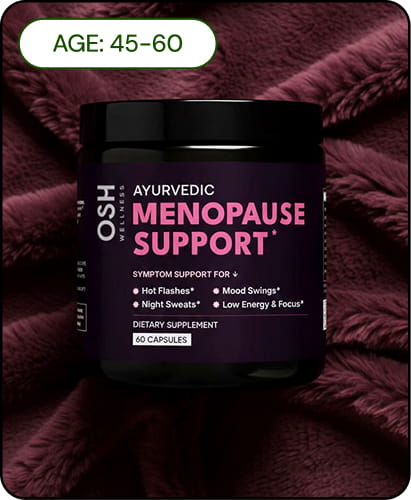Table of content
Experiencing changes in your menstrual cycle can be worrying. Your periods becoming lighter than normal often seems less concerning than periods becoming heavier, but any change is important to acknowledge. Understanding why these changes occur and whether they indicate an underlying issue is essential. In this blog, we’ll explore light periods, what causes them, and when you should consider seeking medical advice.
What Are Light Periods?

A light period, also called hypomenorrhea, is characterized by less bleeding during menstruation than what is typical for you. This can include a shorter duration of bleeding, lighter blood flow, or both. While every woman’s menstrual cycle differs, the average period typically lasts around 4-7 days and involves losing 30-80 milliliters of blood. On average, women lose about 60 milliliters over the course of their period, which is equivalent to one-and-a-half shot glasses. When you experience a period that’s lighter than usual, your blood loss might be significantly lower than this range, and your period may not last as long.
It's important to note that what qualifies as "light" can vary from one woman to another, depending on her typical cycle. If your period seems lighter than your usual flow, it might raise some questions about whether something is off.
What Are the Causes of Light Periods?

Several factors can lead to light periods. Such as:
Hormonal Imbalances : Changes in hormones, particularly estrogen and progesterone, can affect the thickness of the uterine lining, leading to lighter periods.
Stress : High-stress levels can interfere with hormone regulation and production, leading to shorter, lighter periods.
Significant Weight Changes: Rapid weight loss or gain can disrupt hormone production, leading to lighter menstrual flow.
Exercise: Frequent, intense physical activity, especially endurance sports, can sometimes result in lighter periods due to hormonal shifts.
Birth Control: Many forms of hormonal contraception can result in lighter periods or sometimes no period at all (amenorrhea).
Perimenopause: As women approach menopause, they often experience changes in their cycle, including lighter periods.
Nutritional Deficiencies: A lack of nutrients, particularly iron, can affect menstrual flow.
Pregnancy or Breastfeeding: Because of hormonal changes, periods often do not happen at all during pregnancy and breastfeeding, but if they do, they are usually much lighter than your normal flow.
Lack of Ovulation: Sometimes, a light period could indicate that your body did not release an egg.
What Are the Symptoms of Light Periods?

A light period may present differently for every woman, but some common symptoms include:
Reduced Blood Flow: You may notice less blood than usual, perhaps just spotting or a few light days of flow.
Shorter Period Duration: A period typically lasting five days might be over in just two or three days.
Changes in Blood Color: Lighter periods may also cause changes in the color of menstrual blood, which can range from light pink to brown.
Less Need for Sanitary Products: If you normally use regular or super tampons and pads but now find yourself switching to light ones, it could be a sign your period is lighter than usual.
Is It Normal to Have Light Periods?
Light periods can be perfectly normal, especially if you’ve recently made lifestyle changes like starting birth control, increasing exercise, or altering your diet. Most light periods are not a cause for concern, especially if they happen occasionally. Frequently, lighter periods or no periods should be investigated with the help of your doctor. Additionally, if your period has suddenly become lighter and is accompanied by other unusual symptoms, such as severe cramping, fatigue, or other irregularities, it’s a good idea to consult a healthcare professional.
Does Birth Control Lead to Light Periods?

Yes, hormonal birth control methods like the pill, IUDs, or contraceptive injections can lead to lighter periods. These methods work by altering your natural hormone levels, which can thin the uterine lining and reduce the amount of blood that is shed during menstruation.
Some women may even stop getting periods altogether while on birth control, which is usually not dangerous but should be discussed with your doctor. Over time, it’s common to experience lighter, shorter periods while using hormonal contraceptives. If you recently started or switched birth control methods and notice changes in your cycle, it’s typically nothing to worry about. However, if the change seems drastic or you have other concerns, speak with your healthcare provider.
Do Light Periods Need to Be Treated?
The treatment for light periods depends on the underlying cause. If stress, diet, or lifestyle changes are the culprits, addressing these factors can help regulate your menstrual cycle. For example, reducing stress through mindfulness practices, getting adequate nutrition, and managing physical activity can all contribute to a more regular period.
If hormonal imbalances or birth control are responsible, your doctor may suggest altering or discontinuing your contraceptive method. In some cases, they may recommend hormone therapy or other medications to regulate your menstrual flow.
Ayurvedic supplements can also help balance hormones naturally, especially when combined with healthy lifestyle practices. If you are under 35 years old, Cycle Care supports regular periods and relieves PMS symptoms using natural herbs like Shatavari, Vidari Kanda, and Motherwort. For women over 35, Hormone & Mood Support provides excellent support to balance hormones, reduce pre-menopause symptoms and regulate periods.
Take Light Periods Lightly
The occasional light period can be normal and usually not a cause for alarm. Lighter periods can result from various factors such as hormonal changes, lifestyle factors, and the use of birth control. However, if light periods are accompanied by other symptoms or occur suddenly and frequently, it’s essential to consult your healthcare provider to rule out any underlying health concerns.
Related Products
FAQs
Why is my period lighter than usual?
Light periods can occur due to hormonal imbalances, stress, birth control, or lifestyle factors like changes in diet or exercise.
Can a light period mean pregnancy?
Yes, in some cases, a very light period or spotting could be a sign of pregnancy, known as implantation bleeding. If you suspect you might be pregnant, take a test or consult your doctor.
How much light period bleeding is normal?
A typical period involves losing 30-80 milliliters of blood. If your period involves significantly less bleeding but occurs regularly, it may be normal for you. However, seek medical advice if the change is sudden or you experience other symptoms.
Should I be worried that my period is light?
Light periods aren’t always a reason for concern, but if your cycle changes suddenly or you experience additional symptoms (like fatigue or pain), consult a healthcare professional to check for any underlying issues.
Sources :
https://www.ncbi.nlm.nih.gov/books/NBK279294/







